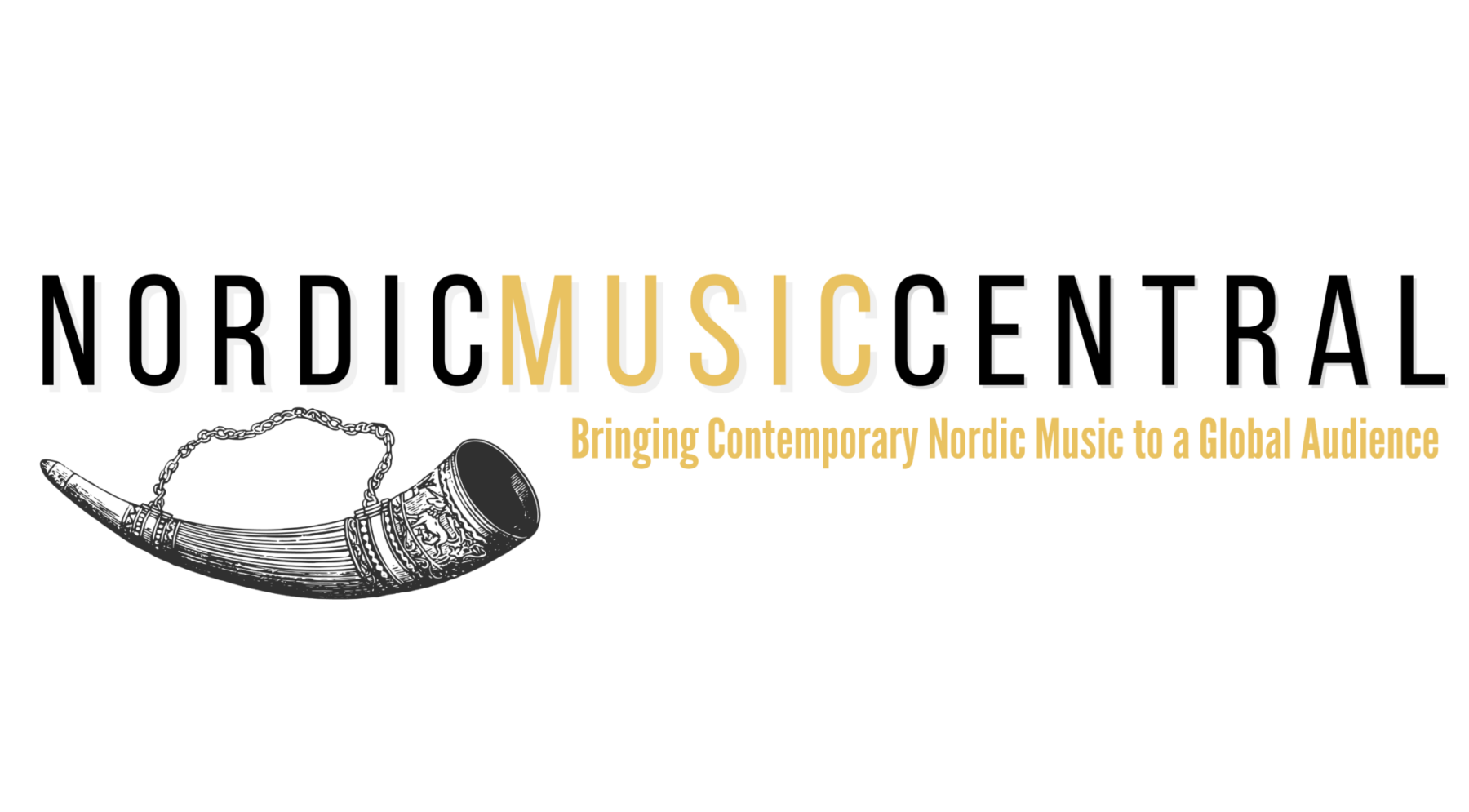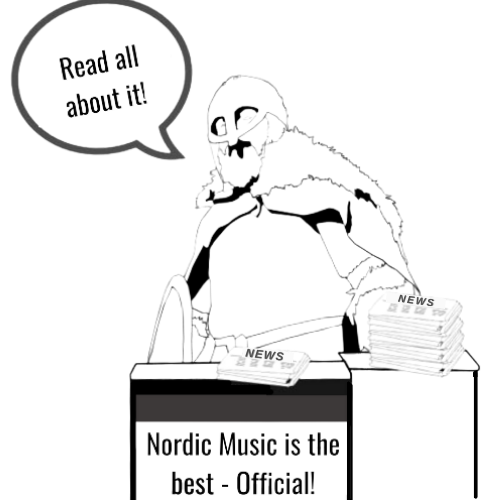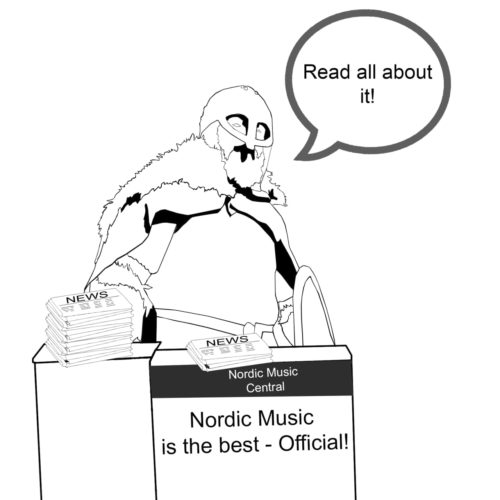I start to write this as this year’s Eurovision begins to fade into history with countless surprises along the way, one of which was the sad spectacle of Norway’s entry (which I thought would do well) trailing in last, even behind the UK’s awful ‘sex act in a toilet’ production.
I don’t know how long it will take Norway to recover from such public ignominy having performed well the previous year but there are always artists it can turn to for consolation and one of them is Maylen Rusti.
Maylen has appeared five times in NMC with songs, all of which appear on this, her second album, and most recently with ‘Si noe tilbake’ (‘Say something back’). I suppose in English we might say ‘give it back’, a euphemism for putting someone in their place when their comments get to be too much but in this instance it actually indicated sort of silent impasse between her and the significant other who might put in a further appearance or two on the album .
It prompted me to conclude, from the five tracks heard so far, that Maylen is “always bright and bubbly, irrespective of the subject matter”, that “you get the impression from her songs that whatever are the circumstances, all is for the best in the best of all possible worlds in her corner of Oslo” and that “she never fails to pick out a tune.”
And that’s a useful starting point for the album, ‘Drømmeland’ or ‘Dreamland’ in English, her second and 10 years after the first (‘Heartmachine’), due in part to a medical issue with her vocal cords.
Maylen introduces it by saying her creations are “energetic, dreamy and honest indie pop music…often about the love life in the big cities” (in Oslo, where she lives now, an émigré from Bergen, but also Copenhagen and New York which she has graced with her presence).
That love life in Oslo seems to be the centre of attention of quite a few artists and bands recently; I really must check it out more thoroughly.
She adds that some of the songs are more melancholic, describing people in some form of trouble, but for the most part they have “a lot of life and lust in them” with an added retro vibe, from her youth, in the 1990s and 2000s.
And that is certainly my experience from the five tracks we’ve experienced so far, going all the way back to ‘Romeo & Julie’, 18 months ago, a tuneful spin on the Shakespearean play with lust a-plenty and which hinted at her strong storytelling skills. Skills which aren’t limited by her writing mainly in Norwegian these days, a language that flows off the tongue in work such as this.
Because we have looked at those five tracks previously and you can find them easily via the search button (Maylen Rusti’ will do the trick) I’ll focus on the ‘new’ five here. All the tracks are from an album in which she relates to the fearlessness that dominated her thinking, a throwback to a youth not all that long ago but slowly fading on the horizon and yet which still inspires her to this day.
‘Drømmeland’ is, she says, “somewhere you can breathe”. It won’t be touring to Manchester then, I guess.
First up is the opening track, conveniently labeled ‘Første Gang’ (‘The First Time’) and nothing to do with Morrissey. In fact it couldn’t be more different, a hauntingly beautiful piano and extraterrestrial synthesiser ballad about a ‘first time’ that is left to your imagination but in which he is ‘sugar’ and she is ‘rhubarb’ and all the indications are that they are going to make a pie. That doesn’t leave much to the imagination does it? Beautiful.
The fourth track is ‘Når Eg Faller’ (‘When I Fall’), and is a more upbeat one, especially in the rhythm and in a convoluted electronic signature which successfully evokes the sensation of falling and spinning out of control. I’m not sure I’ve got the entire drift of it but it does seem to suggest that she can’t stop falling for him but the length of that fall is itself a catalyst for the need to find more time to make a decision. See what you think.
The fifth track, ‘Bak fasaden’, or ‘Behind the Façade’ is another one that’s difficult to call. It could concern a younger sibling, perhaps a brother, who has had to deal with a life-changing event but has risen to the challenge. They have only done so however by adopting a façade behind which they can hide the perennial hurt.
This one owes a lot to a tremendous Aurora-like vocal application to an extended ‘Aahh’ which might even be Ms Aksnes herself. It’s terrific.
The eighth track, ‘Plass Til Èn’ (A Place For One) is the only one that is co-written with her producer, Henrik Hilmersen, and it could be War & Peace compared to the others; a lyrically mammoth track by Maylen’s standards, but compacted into just three and a half minutes.
It’s nothing to do with dining alone from what I can see but a lot to do with a need to be alone, Greta Garbo-like, and in her ‘happy place’ even when the pair have been separated for some time and then suddenly find themselves under the same roof.
The ethos, together with the strident electronic backing, puts me in mind of the lonely, detached melancholia of Sol Heilo at least in the verses although the choruses spin off into an electro-pop banger, the frivolity of which suggest that the happy place provides all of her needs anyway and shouldn’t be seen as a sanctuary city.
Rounding the album off is the title track. ‘Drømmeland’ is the most powerful of all both musically where it reaches the levels of anthem, lyrically, and in the various examples of imagery, metaphor and allegory it employs, such as running through water and sand, the alignment of stars, night turning into day and vice versa and the employment of painting (“with several thousand colours”) as a cure-all for mental illnesses (someone has been watching Bob Ross).
But of course one of those colours is black, and many combinations end up black as aficionados of the dark 1990s television comedy ‘The Fast Show’ will recall.
It’s the sort of stuff that you might expect to find in a 19th century romantic novel from Jane Austen or one of the Brontës, and Maylen clearly isn’t shy of experimenting where others might fear to tread.
With these five tracks on top of the five already released as singles, where there was perhaps a lack of clarity about her direction with the individual songs there is no such lack now within the framework of the album. There is form and purpose, intrigue and delight and with it Maylen Rusti has reestablished her marker as a leading light in the Norwegian intelligent indie-pop scene.
In her publicity she compares herself with artists such as Gabrielle, Aurora and Veronica Maggio. The comparisons henceforth should be with Maylen Rusti.
8/10.
Incidentally, she will be writing in English again but not just yet…be patient.
Find her on:
Facebook: https://www.facebook.com/rusti.maylen
Instagram: https://www.instagram.com/maylenrusti/



